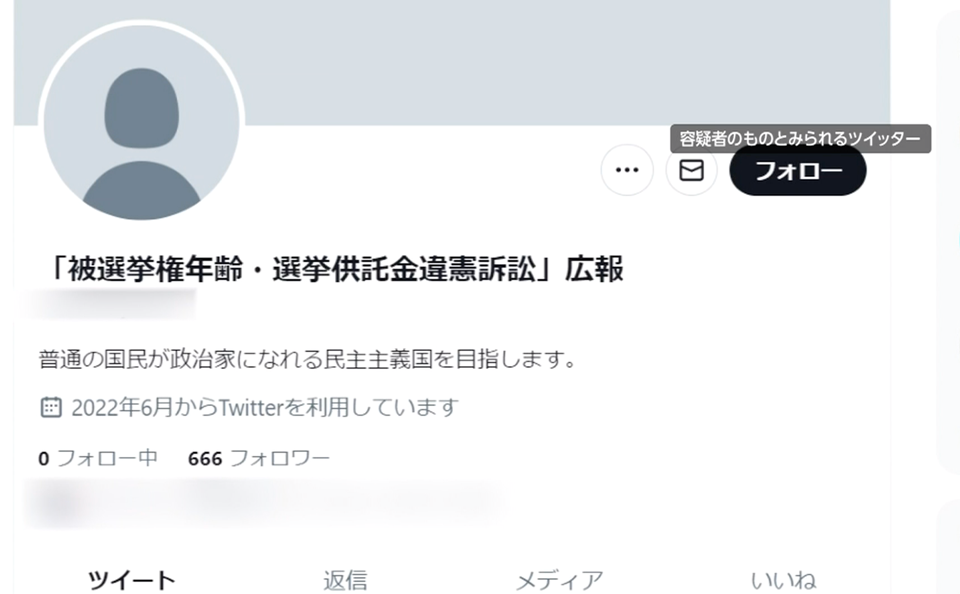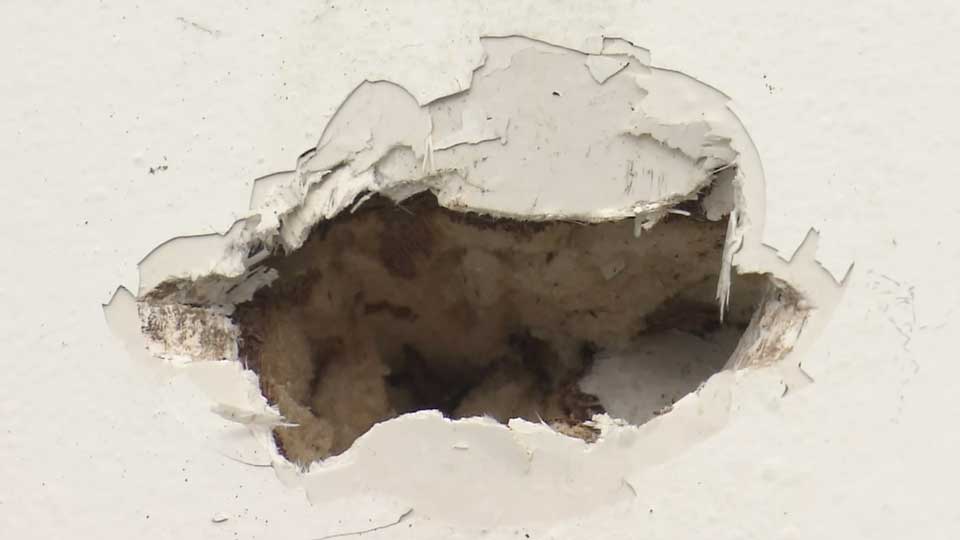The prime minister was about to give a speech in support of a by-election candidate at a fishing port in the western city of Wakayama on Saturday when the attempted attack occurred.
Kimura Ryuji, 24, was arrested on the spot.

The suspect filed a damages suit with the Kobe District Court last year that claimed the government prevented him from running for an Upper House seat. He elected to represent himself in court and did not hire professional legal counsel.
Court records show Kimura claimed the election law violates the Constitution. He specifically challenged the age restriction and the requirement to supply a deposit. Candidates must be at least 30 years of age and put up 3 million yen, or about 22,000 dollars, to run in an Upper House election.
He demanded compensation from the government worth 100,000 yen, or more than 700 dollars, for what he claimed was psychological trauma as a result of being ruled ineligible to stand in last July's election.
The court dismissed the suit, arguing the age qualification and deposit system are reasonable requirements. Kimura filed an appeal last December. The Osaka High Court is expected to hand down a ruling next month.
Police say Kimura also expressed anger at how the Kishida Cabinet decided to hold a state funeral for former Prime Minister Abe Shinzo. The deliberations were held in out-of-session Diet meetings, which Kimura reportedly said was undemocratic and should not have been allowed.
Kimura critical of election system on social media
Kimura appears to have repeatedly criticized Japan's election system on social media.
His last post, made four days before the incident, repeated previous grievances about the voting age limit and deposit system.

Ogushi Masaki, a Lower House legislator for the Liberal Democratic Party, says he believes he was approached by Kimura at a city affairs meeting in Kawanishi City, Hyogo Prefecture last September.
Ogushi says the man seemed interested in becoming a city council member but claimed he wasn't eligible. He says they spoke for over 10 minutes.
"I remember him because he repeatedly asked for the age to be lowered," Ogushi says.
Kimura refuses to talk
At the time of his arrest, Kimura said he would submit to questioning in the presence of legal counsel. But police say he remains unwilling to talk, even after meeting with a lawyer.
Kimura's lawyer spoke to reporters on Tuesday, but said he could not reveal anything about his conversations with his client.
"I can't say anything," Kimura's lawyer said. "There's nothing to announce."

Liquid, powder, metal plate found in backpack
Local police in Wakayama Prefecture held a press briefing on Tuesday evening.
They say they seized the suspect's backpack and found a water bottle filled with some kind of liquid, a separate bottle containing powder, a metal plate, a spoon and a lighter inside.
Explosive fragment found 60 meters away
Police have found another fragment of the explosive used in the attack. It was lodged into a 2-meter-tall shipping container more than 60 meters from the site of the explosion.

The fragment is believed to be the lid of a tube-shaped object thrown at Prime Minister Kishida. Investigators suspect there was gunpowder inside the container.
Police already found the main cylindrical portion more than 40 meters away from the site of the explosion.
Japanese police to use AI to detect online information on making homemade weapons
Police have decided to use artificial intelligence to detect online information related to the making of homemade guns and explosives.
The National Police Agency plans to introduce a technology called Natural Language Processing in September. It analyzes texts and singles out content that could pose serious risks to human life.
The agency has been asking website managers to delete content on how to make firearms and explosives since February.
The technology will be applied to posts on Twitter and YouTube. The agency expects it will detect harmful content more accurately than its officials can by manually searching keywords.
